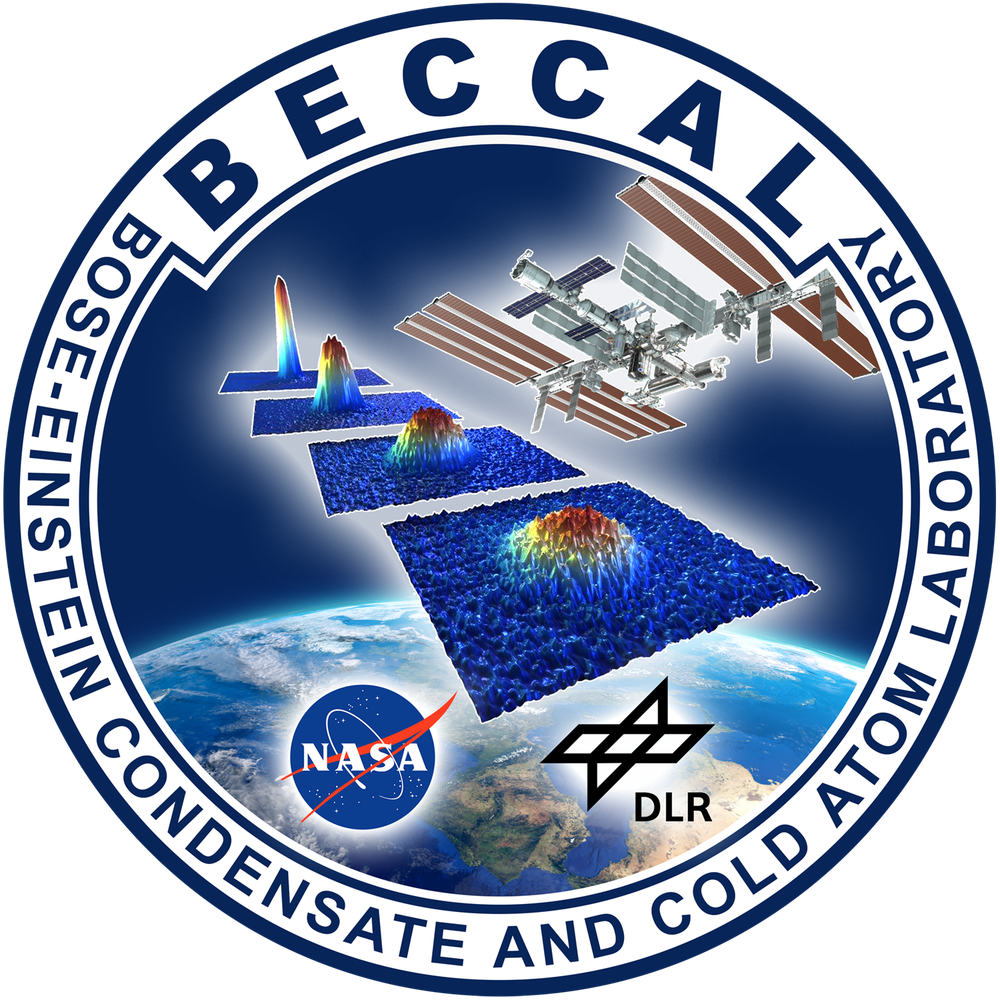BECCAL
BECCAL (Bose-Einstein Condensate and Cold Atom Laboratory), a NASA-DLR collaboration, is a pathfinder mission for developing concepts for future quantum sensors based on laser-cooled atoms and Bose-Einstein condensates aboard the international space-station (ISS). The persistent microgravity condition aboard the ISS offers a unique environment for such experiments. It enables enhanced free-fall times, due to the lack of gravitational sag trap configurations impossible on earth, and repeatability for detailed statistical analysis.

Technological and scientific approaches developed and tested in BECCAL are the basis for future application of quantum-sensing in inertial navigation and earth observation, for which improvements are expected due to the precise and absolute measurement of atom interferometers. The compact and robust design of the payload also offers perspectives for mobile operation of quantum sensors on earth.
BECCAL is designed as an apparatus for various tests of experimental concepts with different objectives. It provides different atomic species (Rb-85, Rb-87, K-39, K-40, K-41) which can be manipulated with various quantum optical tools such as microwave/radio frequency radiation, red and blue tuned optical dipole traps, magneto-optical and magnetic atom traps. Consequently, BECCAL offers a unique platform for conducting a broad range of different quantum-optical, atom-optical, and atom-interferometric experiments.
BECCAL is based on QUANTUS and MAIUS, a series of atom-optical experiments in weightlessness supported by DLR Agency. As microgravity platforms, the Bremen Drop Tower and sounding rockets were used. Experiences gathered with the Cold Atom Laboratory (CAL), developed by NASA at the Jet Propulsion Laboratory and installed on the ISS in 2018, influenced the design of BECCAL.
The payload for BECCAL is developed and realized at the Institute for Satellite Geodesy and Inertial Sensing as well as the Institute for Quantum Technologies with support of the DLR Agency. Further institutes involved are the Humboldt University of Berlin, the Johannes-Gutenberg University Mainz, the Ferdinand Braun Institut, Leibniz Institut für Höchstfrequenztechnik, the Leibniz University Hannover, the University of Bremen, the Ulm University and the OHB System AG.
